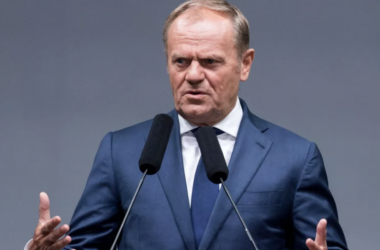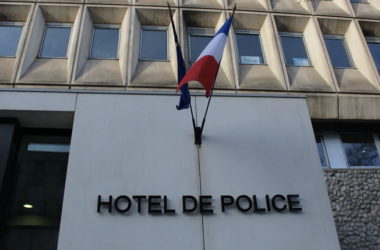In a bold diplomatic pivot, French President Emmanuel Macron has signaled that France will formally recognize the Palestinian state within the coming months—a move he framed as both morally right and strategically necessary for regional stability. The announcement, made during a recent interview on French television while Macron visited Egypt, marks a significant shift in France’s Middle East policy.
“We need to move toward recognition, and we will,” Macron declared, calling it a step toward “collective security in the region.” He believes that by taking the lead, France can nudge opposing sides toward meaningful dialogue—particularly those who deny Israel’s right to exist while advocating for Palestinian sovereignty.
The Palestinian Authority welcomed the statement, hailing it as “a step in the right direction.” Macron also noted that France and Saudi Arabia are preparing to co-host a peace conference in June aimed at mutual recognition of Palestine by multiple international actors.
Back on the home front, Macron’s government is simultaneously working to patch up frayed ties with Algeria, a former French colony with a historically tense relationship with Paris. French Foreign Minister Jean-Noël Barrot, during an April 6 visit to Algiers, announced the dawn of “a new phase” in Franco-Algerian relations.
Meeting with Algerian President Abdelmadjid Tebboune for over two hours, Barrot emphasized the mutual desire to “lift the curtain” on past grievances and “rebuild a partnership of equals.”
Relations hit a rocky patch last year after Macron publicly backed Morocco’s autonomy plan for Western Sahara, sparking anger in Algiers. Tensions were further inflamed by a European Parliament resolution demanding Algeria release political prisoners, including 80-year-old author Boualem Sansal—who was soon handed a five-year prison term.
Despite provocative remarks from French Interior Minister Bruno Retailleau, who struck a harder tone on Algeria, Macron seems keen to ease diplomatic friction. His approach appears to be gaining traction—former Prime Minister Dominique de Villepin, who recently re-entered the political scene and is rumored to be eyeing a presidential bid, voiced strong support.
Villepin urged a move toward “serenity” in Franco-Algerian relations, warning against inflammatory rhetoric. When grilled on BFMTV about whether Algeria’s imprisonment of dissidents qualified it as a dictatorship, Villepin sidestepped the label, arguing that such declarations only fuel diplomatic dead ends. “There are millions of dual nationals living in France,” he noted, stressing that the issue straddles both domestic and foreign policy.
Observers say Macron’s more assertive international stance—especially in contrast to U.S. President Trump’s approach—might be partly driven by Villepin’s reappearance. After all, Macron’s Renaissance party absorbed much of Villepin’s former political base, and any potential rivalry could add extra weight to France’s diplomatic maneuvers.
With recognition of Palestine and a diplomatic reset with Algeria both on the table, France seems to be betting on a more active global role—whether the world is ready or not.




